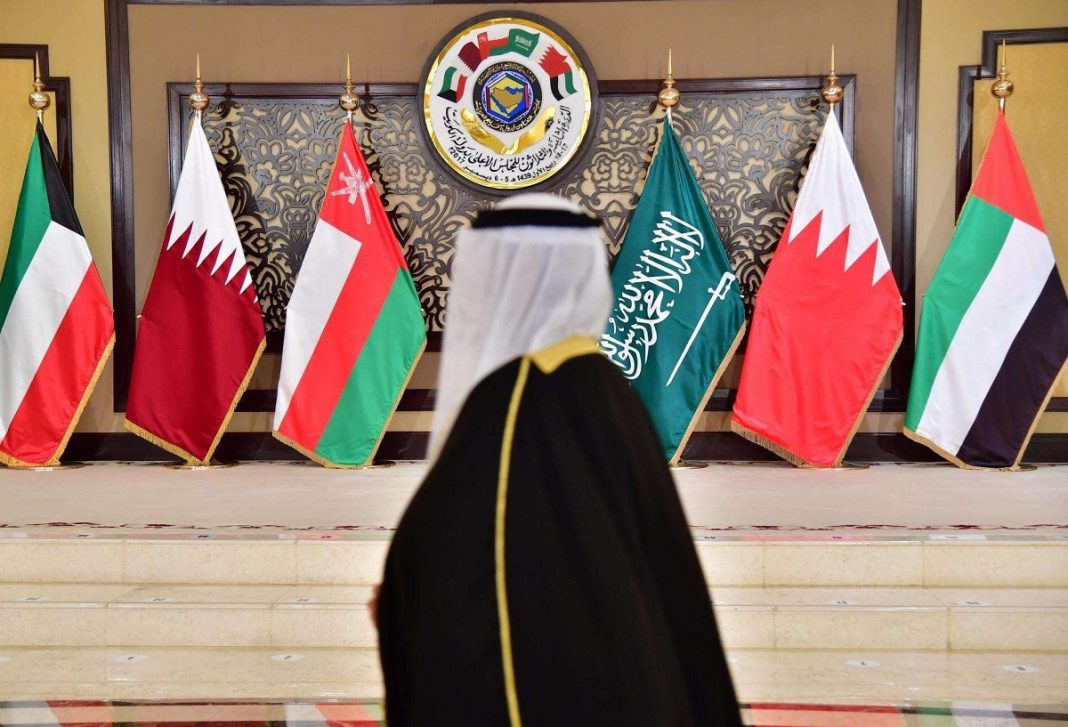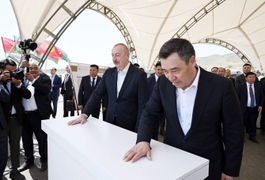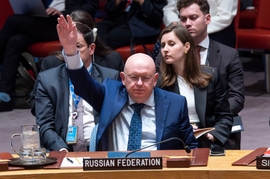Iranian Foreign Minister Hossein Amir-Abdollahian has proposed the establishment of a forum among the Persian Gulf littoral states to enhance their relations.
According to the Islamic Republic of Iran Broadcasting, Amir-Abdollahian made a statement during a meeting with Kuwaiti Prime Minister Nawaf Al-Ahmad Al-Jaber Al-Sabah in Kuwait on June 21.
“We propose the formation of a forum for regional cooperation among countries of the north and south of the Persian Gulf. This [forum] can play a constructive role in boosting convergence and cooperation among the countries of this region, and Kuwait, owing to its positive experience in this regard, can assume an important role,” he said.
The Kuwaiti prime minister, in turn, commended the longstanding relations between the two countries and regarded the presence of approximately 30,000 Iranians in Kuwait as a sign of “good neighborliness and deep relations.” He also welcomed “Iran’s initiatives for strengthening ties with Arab states,” referring to the recent restoration of Iran-Saudi relations.
Amir-Abdollahian began his Gulf tour in Qatar, followed by visits to Oman and Kuwait. He is scheduled to conclude his tour with a stop in the United Arab Emirates. During his visit to Oman on June 21, the Iranian foreign minister expressed support for a UN proposal to organize a meeting involving him and his counterparts from the other Gulf countries. In a press conference, Amir-Abdollahian stated that the meeting would bring together eight states, presumably Bahrain, Iran, Iraq, Kuwait, Qatar, Saudi Arabia, the United Arab Emirates, and possibly Oman.
“We are in accord with the prime minister and foreign minister of Qatar and the Omani foreign minister that this initiative can lead to cooperation between the eight countries of the Persian Gulf,” he said, adding that the meeting should take place in New York this September.
Amir-Abdollahian further mentioned that he discussed “following up” on the bilateral agreements reached during Omani Sultan Haitham bin Tariq Al Said’s recent visit to Tehran in a meeting with Omani Foreign Minister Badr bin Hamad al-Busaidi. He stated that the two countries had moved beyond the phase of “mere talk” and had transitioned to “varied and multifaceted” forms of cooperation. He expressed gratitude for the Omani Sultan’s efforts to encourage “cooperation, peace, stability, and regional development.”
In early June, Iran’s Navy Commander Shahram Irani announced that Iran, Saudi Arabia, the United Arab Emirates (UAE), Bahrain, and Qatar plan to form a naval alliance that may also include India and Pakistan.
“The countries of the region have today realized that only cooperation with each other brings security to the area,” the commander said on June 3.
Iran has recently been making efforts to improve its strained ties with several Gulf Arab states. In March, Saudi Arabia and Iran ended seven years of hostility under a China-mediated deal, emphasizing the importance of regional stability and economic cooperation. Over the past year, Kuwait and the United Arab Emirates have reopened their embassies in Tehran after downgrading diplomatic ties in solidarity with Saudi Arabia.
In contrast to Iran and the regional states, Israel has expressed concerns about the evolving relations between Iran and the Gulf Cooperation Council countries.
The formation of a new naval alliance with Iran carries the risk of straining the Gulf countries’ relationship with the US. This tension could arise either due to direct involvement in such an alliance or because it is widely recognized that any naval force associated with this “alliance” may end up engaging in clashes or maritime confrontations with US forces stationed in the area.







 President Ilham Aliyev shed light on the evolving contours of the peace process with Armenia during an international conference in Baku this week. ...
President Ilham Aliyev shed light on the evolving contours of the peace process with Armenia during an international conference in Baku this week. ...
 Azerbaijan and Armenia started the process of demarcation of their border on Tuesday, with the installation of the first border markers based on ge...
Azerbaijan and Armenia started the process of demarcation of their border on Tuesday, with the installation of the first border markers based on ge...
 Iranian President Ebrahim Raisi expressed Tehran’s readiness to participate in significant development projects in Sri Lanka during the inauguratio...
Iranian President Ebrahim Raisi expressed Tehran’s readiness to participate in significant development projects in Sri Lanka during the inauguratio...
 Iran and Pakistan have signed eight cooperation documents in various fields, and agreed to strengthen ties to fight terrorism in the region.
Iran and Pakistan have signed eight cooperation documents in various fields, and agreed to strengthen ties to fight terrorism in the region.
 As the conflict between Ukraine and Russia escalates, the strategic importance of Kharkiv, Ukraine's second-largest city, has come sharply into focus.
As the conflict between Ukraine and Russia escalates, the strategic importance of Kharkiv, Ukraine's second-largest city, has come sharply into focus.



